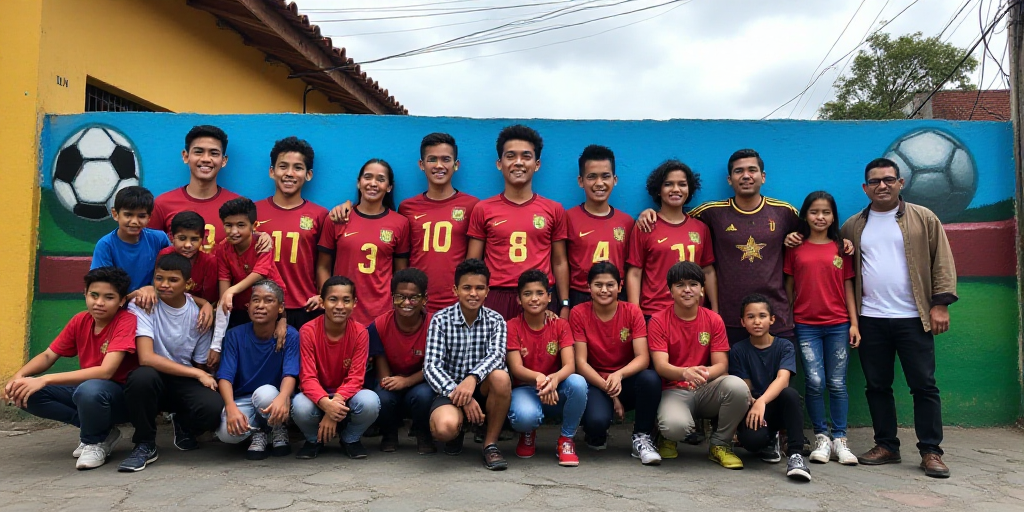Introduction to Hub Azteca
As small businesses gear up for the 2026 FIFA World Cup, Hub Azteca has been established as a free business training center to bolster their skills in areas such as marketing, sales, and customer service. Located near the Estadio Azteca in Mexico City, this initiative aims to support local small businesses and entrepreneurs in the southern part of the capital.
About Hub Azteca
Hub Azteca, directed by Mario Romero, the director of Impact Hub CDMX, offers free workshops on customer service, hospitality, digital tools, electronic payment methods, commercial image, marketing, and sales. Additionally, the center provides assistance with microcredit linkage and financial support.
Target Businesses
- Taquerias (taco shops)
- Fondas (small food stalls)
- Pharmacies
- Convenience stores (tiendas de abarrotes)
Impact and Benefits
The Hub Azteca initiative is expected to benefit over 300 businesses by June 2026, with potential program extensions in other World Cup host cities like Guadalajara and Monterrey.
Key partners driving this initiative include Impact Hub CDMX, Promotora Social México, Educación Financiera Banamex, Fundación Coppel, Fundación Compartamos, and the U.S. Embassy in Mexico.
Mario Romero emphasizes that the main goal is not just preparing for an event but using it as a catalyst for local development, creating a lasting impact on the community’s business landscape.
The Challenge of a Lasting Legacy
The 2026 World Cup, co-hosted by Mexico, the United States, and Canada, presents both a historic opportunity and a significant challenge. Unlike previous editions, this tournament will be the first to involve three countries.
To meet expectations, Mexican host cities are investing heavily in infrastructure. In Mexico City, the government has allocated over 6,000 million pesos for modernizing the Light Rail to Estadio Azteca, introducing new electric trolleybus lines, and improving surrounding roadways. Furthermore, 2,100 million pesos are earmarked for Estadio Azteca’s renovation and 8,500 million pesos for adjustments at Benito Juárez International Airport.
Guadalajara plans to invest more than 3,000 million pesos in revitalizing its Historic Center and tourist spaces, along with 250 million pesos for upgrading Estadio Akron. Monterrey is also preparing similar investments to ensure its role as a host city.
However, experts warn that these investments should extend beyond infrastructure to generate sustainable benefits. Past examples, such as Berlin in 2006 and Moscow in 2018, demonstrate that a well-managed World Cup can lead to substantial increases in tourism, domestic consumption, and temporary employment.
“We want the efforts to capitalize on the event to go beyond infrastructure and involve the community. The true legacy will be the benefits for those who call this place home,” concludes Mario Romero.
Key Questions and Answers
- What is Hub Azteca? Hub Azteca is a free business training center in Mexico City, offering workshops on marketing, sales, customer service, and more to support local small businesses ahead of the 2026 World Cup.
- Who are the key partners? The initiative is driven by Impact Hub CDMX, Promotora Social México, Educación Financiera Banamex, Fundación Coppel, Fundación Compartamos, and the U.S. Embassy in Mexico.
- Which businesses will benefit? Taquerias, fondas, pharmacies, and convenience stores are among the businesses that will receive support from Hub Azteca.
- What are the infrastructure investments in Mexican host cities? Mexico City plans to invest over 6,000 million pesos in transportation upgrades and Estadio Azteca renovation. Guadalajara will invest more than 3,000 million pesos in its Historic Center and Estadio Akron modernization. Monterrey is also preparing similar investments.
- What sustainable benefits are expected from the World Cup? Experts believe that, if managed well, the 2026 World Cup can lead to increased tourism, domestic consumption, and temporary employment opportunities.






